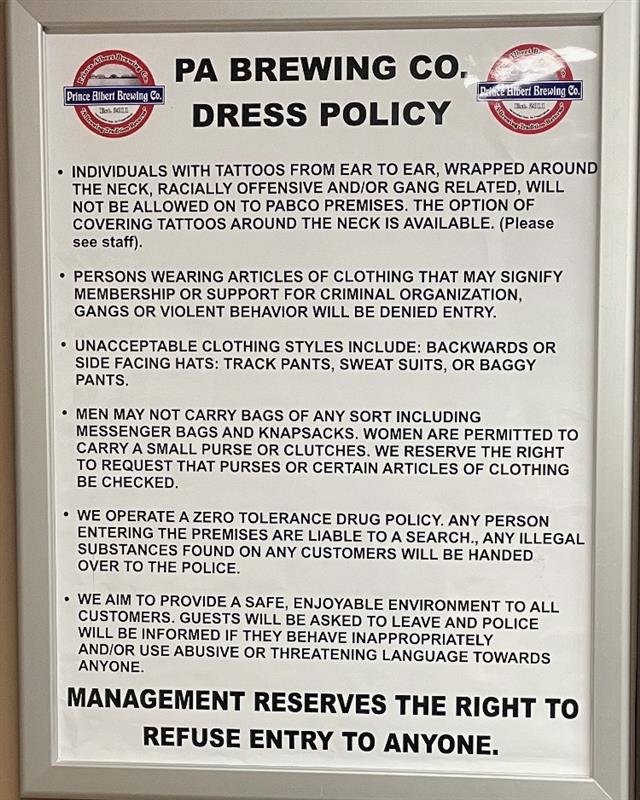A Cree woman is urging the owner of a brewery in Prince Albert, Sask., to improve its dress policy after she was asked to leave over the weekend because of her cultural face tattoo.

Sara Carriere-Burns of James Smith Cree Nation met up with her cousins at the Prince Albert Brewing Company over the weekend.
In an interview with Global News, she said she had just ordered a diet coke and water when a male staff member asked her to leave because of her chin tattoo — one she got a year ago that has significant cultural meaning.

Carriere-Burns said she asked to speak to the manager, and that the owner was brought to her table. She said he asked her to either leave or cover the tattoo with makeup.
In a video she posted to Facebook, the man is heard saying, “Our dress code is no facial tattoos.”
Carriere-Burns said the tattoo is part of her culture, to which the man said, “I don’t care — put makeup on it, cover it up. You’re not allowed in our bar — I don’t care what your culture is … I see people coming in every day with s— written on their face, doesn’t matter what it is, that’s the rule.”
The brewery’s dress policy is posted at the front entrance, and states that people with “tattoos from ear to ear, wrapped around the neck, racially offensive and/or gang related, will not be allowed on to PABCO premises. The option of covering tattoos around the neck is available.”

Get breaking National news
When Global News called the Prince Albert Brewing Company office, the man who answered said he didn’t want to comment on the incident or the video, but said, “I’m the star of it.” He reiterated the policy on tattoos and quickly ended the call.
“I didn’t see (the dress policy) when I went in, but I don’t usually look for a sign because I’m not generally breaking rules,” said Carriere-Burns. “And I’ve never heard of a ‘no face tattoo’ policy or rule.“
She said she and her cousins left immediately because she didn’t think it would be a safe space for open communication.
Her tattoo has significant meaning and has been part of her healing journey, she explained.
Carriere-Burns said she’ll be sober 10 years in August, and that diving deep into culture, tradition and her children is what saved her.
“I started doing some research on the facial tattoo,” she said. “Women use (the markings) to ward off ailments … and thought to be medicinal, and my kids are my medicine and that’s what’s pulled me through for the last nine and a half years.”
The markings represent her children, she said.
“The two outer lines represent our two children we lost during birth. The two inner lines are my biological daughters. And then I have dots in the middle,” Carriere-Burns said. “(They) represent children that are my children but not biologically.”

She’s proud to display her culture and tattoo in such a visible way because Indigenous people couldn’t for so long.
“We weren’t allowed to do that,” she said. “Things like this is what had our people killed or beaten or raped back in the day and and we weren’t allowed to have this.”
She said it helps show the world that she’s a proud Indigenous woman.
“It’s my way of showing my girls to love who they are and value who they are and know that they matter.”
She said she doesn’t think an apology from the pub is likely, but hopes the staff will acknowledge that culture and tradition are human rights.
“It’s ignorance and discrimination,” she said. “Telling me, ‘Cover it up and come back’ — (to) hide my identity and come back, right? It’s hurtful.”
Carriere-Burns is calling for the business to change its policy and for it to develop a better understanding of Indigenous culture in Treaty 6 territory.
“We’re not sitting down anymore and people need to accept that,” she said. “We’re on equal grounds. We just got to come out of those old ways.”









Comments